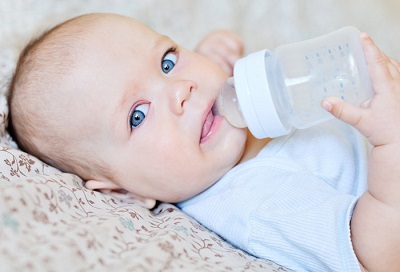If a woman decides not to breastfeed her baby it is her choice and must be respected, midwives are being told.
The Royal College of Midwives’ new position statement makes it explicitly clear that women should be supported if, after being given advice, information and support, they opt to bottle feed using formula milk, according to BBC.
Although breast is best, often some women struggle to start or sustain breastfeeding, says the RCM.
Informed choice must be promoted.
The National Childbirth Trust says women can experience unacceptable levels of pressure however they feed their babies – from family and friends, as well as from people they hardly know.
Mothers who breastfeed their babies often feel pressurised and constrained about whether, where, how often, and how long they breastfeed. Similarly, mothers who use formula milk often feel judged or guilty too, particularly – but not only – if they planned to breastfeed.
Quarter of mums made ‘uncomfortable breastfeeding in public
Paying mothers to breastfeed
Hospital’s ‘artificial feeding’ letter to mothers criticised
Are there downsides to ‘breast is best’?
Researchers at Liverpool University studied the experiences of more than 1,600 new mums in 2016. Among the 890 who did formula feeding, 67% reported feeling guilty, 68% felt stigmatised and 76% felt the need to defend their feeding choice.
Similar emotions were less common but still present among the breastfeeding mums, particularly for those who supplemented breastfeeding with formula.
Investigator Dr Victoria Fallon, from the university’s school of psychology, said: “We looked at a range of emotions and found that women who started exclusively breastfeeding but then stopped were most likely to feel guilty, while those who bottle-fed from birth often felt stigma.”
Breast, bottle or both
The UK has one of the lowest rates of breastfeeding in Europe.
Although most new mothers try it initially, less than half are still exclusively breastfeeding when their baby is six weeks old. This drops to about 1% at six months, figures suggest.
Experts recommend, whenever possible, babies should be exclusively breastfed for the first six months of their life, and breastfeeding should continue for up to two years alongside introducing solid foods.
But, ultimately, it should be the woman’s choice, says the RCM.
H.Z

